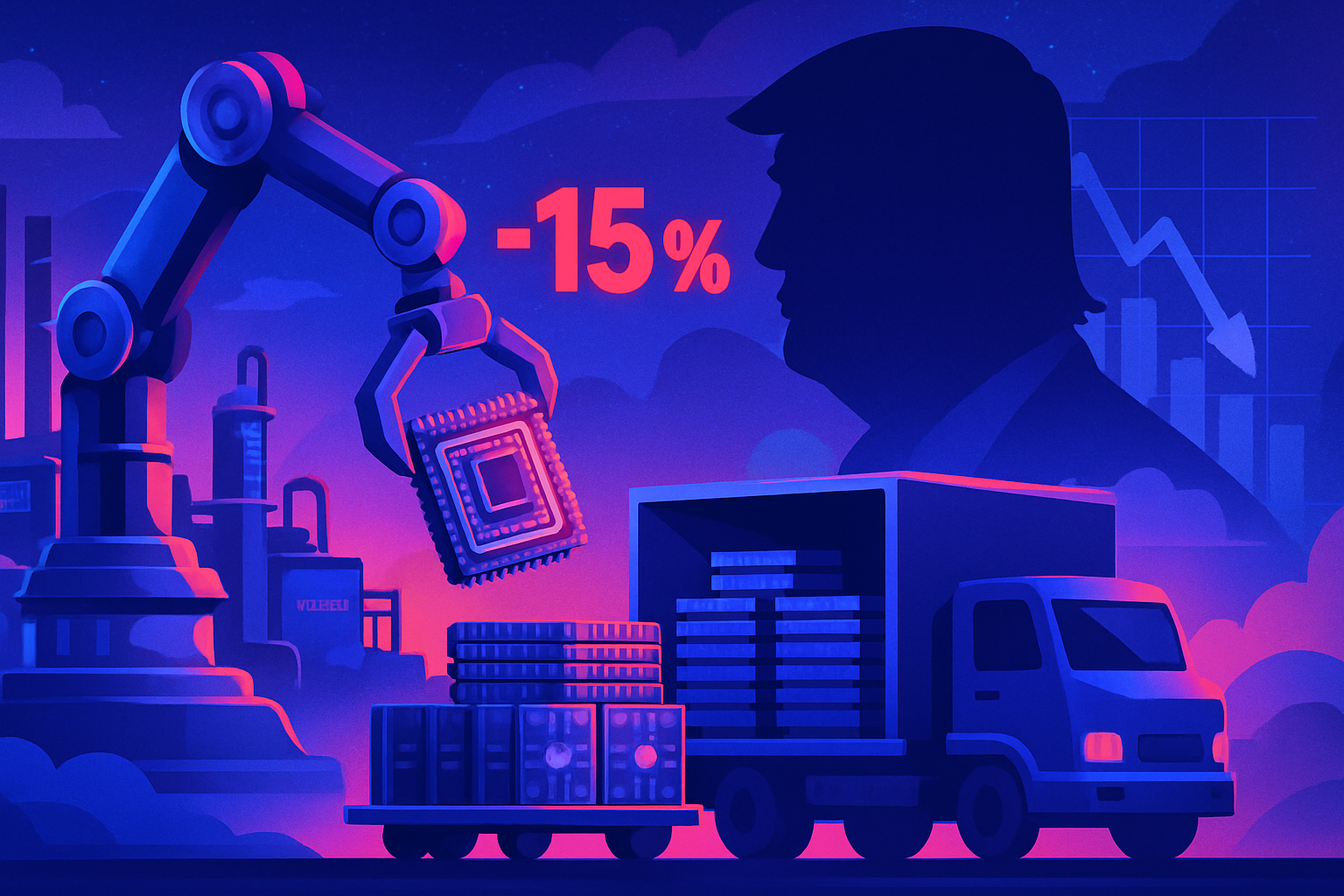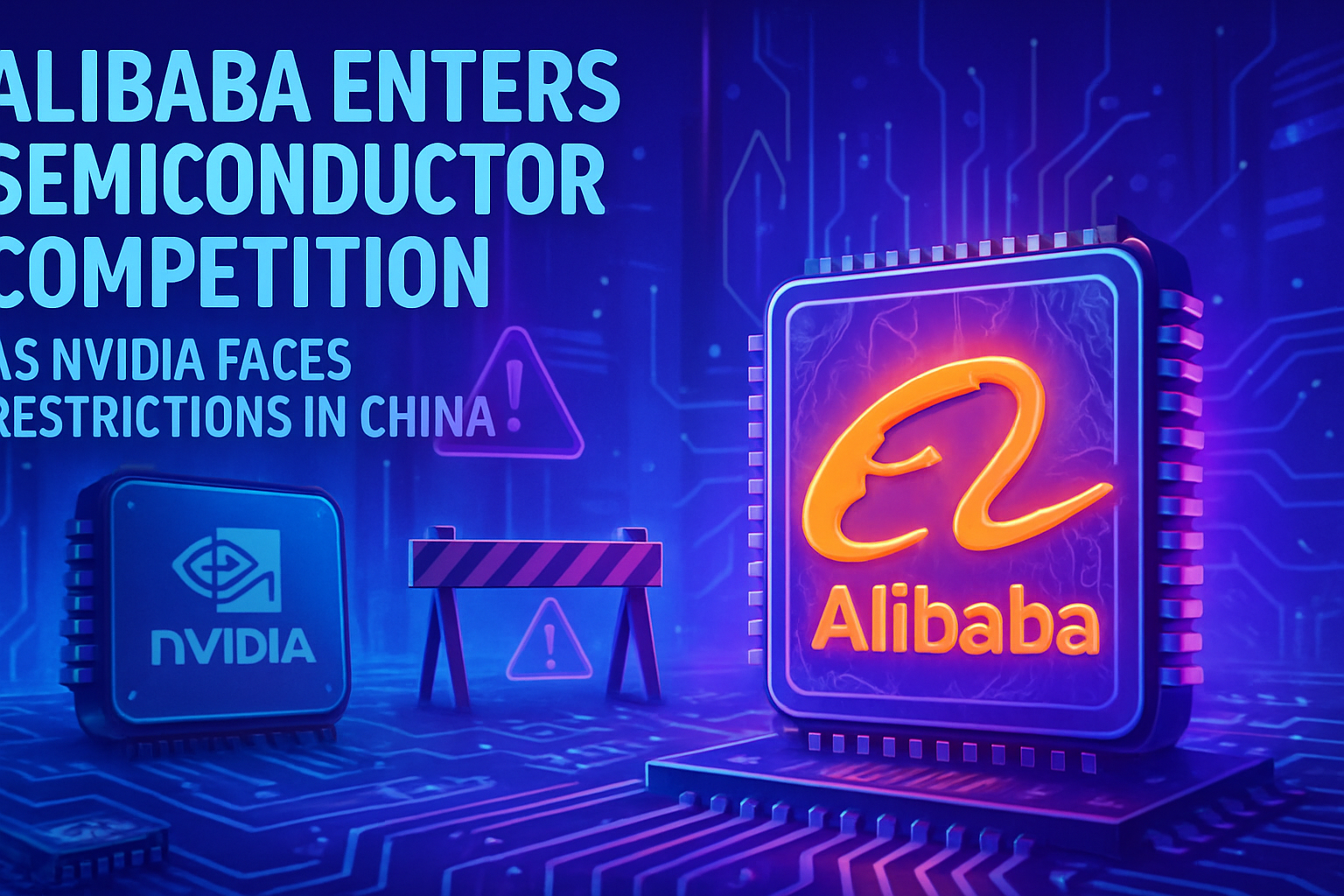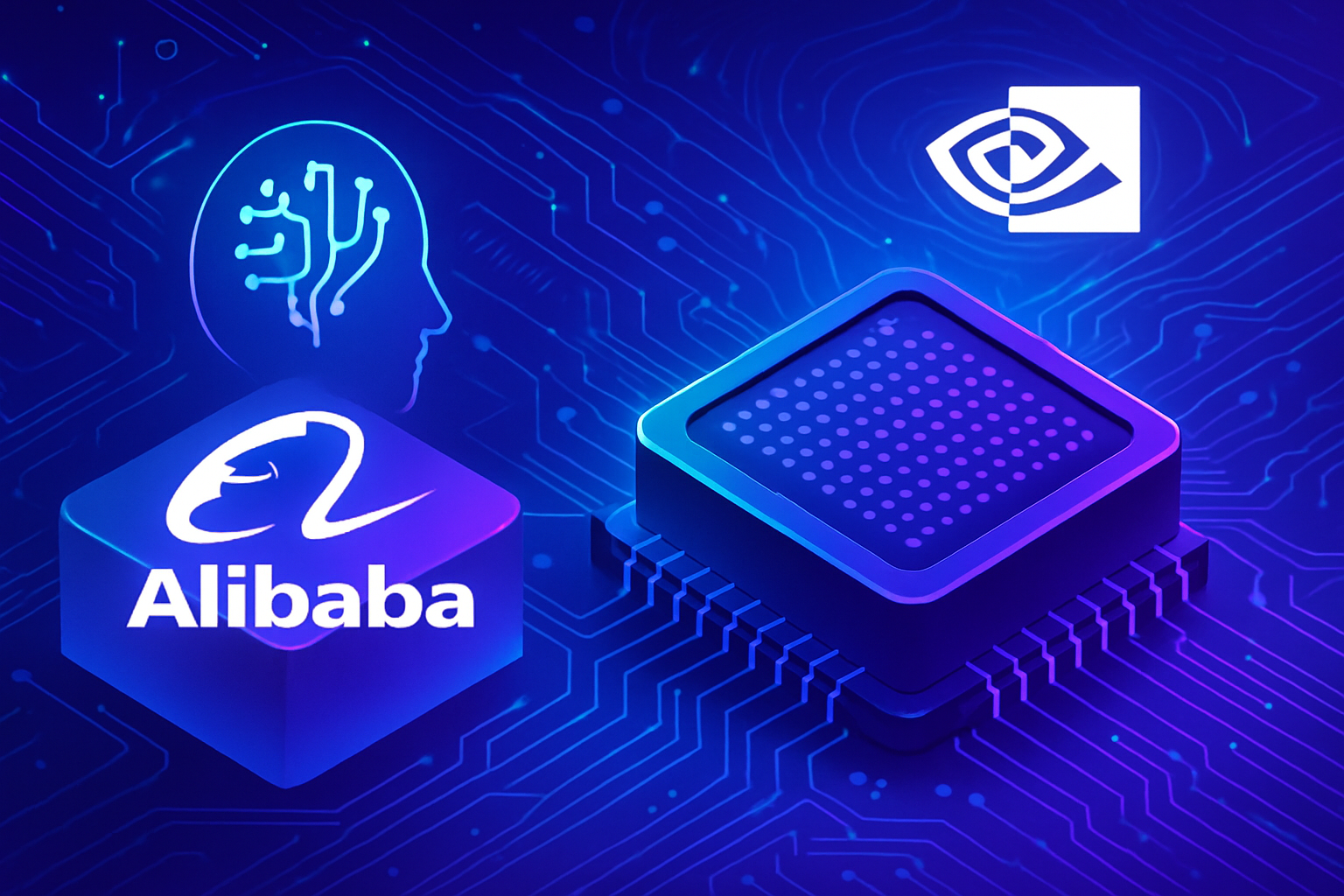The entanglement of economic interests between the United States and China intensifies geopolitical tensions. A 15% federal levy on Nvidia exports to China crystallizes the stakes of the trade war. This initiative by Donald Trump, aimed at restoring a desired balance, raises questions about the actual effectiveness of such a measure. The implications extend well beyond mere financial transactions, touching at the heart of technological innovation and diplomatic relations. Trump’s strategy, oscillating between protectionism and collaboration, redefines the contours of a rapidly changing global market.
An unprecedented federal levy on Nvidia
The American president, Donald Trump, has officially announced an unprecedented tax measure during a recent conference at the White House. This 15% levy concerns the exports of the company Nvidia to China. In exchange for this contribution to the U.S. Treasury, the firm obtains permission to export H20 chips, despite previous restrictions.
Negotiations amid a trade war
The context of this decision is based on the increasing tensions between the United States and China. Restrictions on the export of artificial intelligence processors have been in place since 2023. Trump’s initiative to impose 15% royalties reveals his desire to exert economic control over this strategic sector.
During discussions with Nvidia’s CEO, Jensen Huang, Trump expressed his wish to establish a financial agreement for the benefit of the United States. This approach constitutes a bold maneuver aimed at maximizing nationalist revenues. The president stated: “The H20 is obsolete, but it still has a market.”
Impact on the tech market
This decision could significantly influence the technological landscape. Access to H20 chips will help maintain momentum in the Chinese markets while generating revenue for the U.S. government. Other companies, like AMD, may also be affected by such measures, intensifying competition among tech giants.
The consequences of economic interference
Supporters of a tougher stance toward Beijing criticize this trade truce. According to them, this action could be interpreted as a sign of weakness in the face of China’s economic power. Other analysts point out that this levy could fuel diplomatic tensions, thereby exacerbating the already strained relations between the two great powers.
A new business model in the making
The 15% levy could set a precedent that reinvents the business model between the United States and other nations. By transforming exports into a financial issue, Trump displays his intention to steer the tech market toward economic nationalism. Companies may need to reassess their export and import strategies to adapt to a changing environment.
Reactions from the industry
This shift in direction has sparked mixed reactions among industry players. Some tech leaders welcome a strategy that could benefit the United States, while others fear an escalation of tensions with China. Trump’s economic position generates debate on the balance between economic power and international cooperation, making the future of trade alliances uncertain.
Frequently Asked Questions
What are the details of the new 15% federal levy on Nvidia’s exports to China?
The federal levy decided by the Trump administration imposes a 15% tax on the revenue generated by Nvidia from its exports of H20 chips to China, marked by a negotiation between the president and the company’s CEO.
Why was this levy implemented?
This levy is seen as a political maneuver to increase tax revenues while exerting pressure on China amid the ongoing trade war between the two countries.
How does this levy affect consumers and the market?
Consumers may see an increase in prices for products that use Nvidia chips due to the tax, which could also affect the company’s competitiveness in the Chinese market.
What are the consequences for Nvidia following this levy?
Nvidia will need to adjust its pricing strategies to compensate for this tax, potentially affecting its margins and positioning in the Chinese market, while needing to maintain its market share against growing competition.
What impact could this levy have on U.S.-China relations?
This levy could exacerbate the already present trade tensions between the United States and China, increasing the risks of trade retaliations from Beijing.
Are there similar precedents to this levy on exports?
Yes, in the past, such taxes have been implemented by the United States on other products, often as part of trade wars aimed at protecting American companies.
Are other tech companies affected by this type of levy?
Yes, other companies like Advanced Micro Devices (AMD) are also affected, particularly with the restrictions and conditions of sale imposed by the Trump administration.
What types of products are affected by this 15% levy?
The levy mainly concerns H20 chips and potentially other less advanced AI processors, which are still deemed competitive in the Chinese market.
How could Nvidia defend itself against the impacts of this levy?
Nvidia could explore options to diversify its markets, invest in other technologies, or seek to influence the administration to reduce this imposed tax.






